How do we save the past in a violent present for an uncertain future? As the new decade lurches forward, general-purpose networked computing faces significant socio-technical and political trials. Long gone are the days of technological optimism; the benefits and opportunities afforded to societies by digital infrastructure and digital culture are marred by serious socio-technical flaws that make the systems we rely upon fragile and ethically compromised. From the subtle psychological influences of digital interfaces that compress our cognitive potential, to the hidden power structures baked into opaque infrastructures, the challenges posed by the digitisation of society are systemic and complex.
This research evaluates the design of web archival tools and the broader social and political contexts of web archiving tools and practice, both from the systemic realities of web archiving as a practice, and through the context of specific emergent tool, the Webrecorder open-source project. Through these lenses, this research uncovers threats to the growth and resilience of web preservation tools and long term data storage, driven by systemic factors — inadequate risk assessments by funders, deteriorating geopolitical and ecological conditions, and a lack of collaborative research and knowledge sharing within the practice of web archiving and its related fields.
This research finds that the field of web archiving and its landscape of tools and institutions are out of step with the realities of rising instability and complexity of the 21st century. As societal digitisation accelerates, so too has the belligerence of state and corporate power, the democratisation and intensity of targeted harassment, and the collapse of consent by communities plagued by ongoing (and often unwanted) datafication. Drawing from the climate of the 2020s and informed by an extensive landscape review, as well as a series of qualitative interviews with digital and web archive practitioners conducted between December 2021 and May 2022, this research identifies key intersectional systemic challenges to the fields of digital and web archiving. Many of these issues threaten the quality and resilience of web archives and the integrity of digitally-archived material. They also have profound implications to the physical safety, legal standing and mental health of archive practitioners and communities subjected to archiving. This research identifies and documents issues of ethics, consent, digital security, colonialism, resilience, custodianship and tool complexity.
Despite the challenges identified in the research, there exist compelling reasons to remain optimistic. Funders and projects committed to addressing web and digital archiving in the polycrisis can explore emergent technologies, stronger socio-technical literacy amongst archivists and critical interventions in the colonial structures of digital systems as immediate points of intervention. By acknowledging the shortcomings of cybernetics, resisting the desire to apply software solutionism at scale, and developing a nuanced and informed understanding of the realities of archiving in digitised societies, a broad surface of opportunities can emerge to develop resilient, considered, safe and context-sensitive archival technologies and practice for our uncertain world.

 PDF version
PDF version
